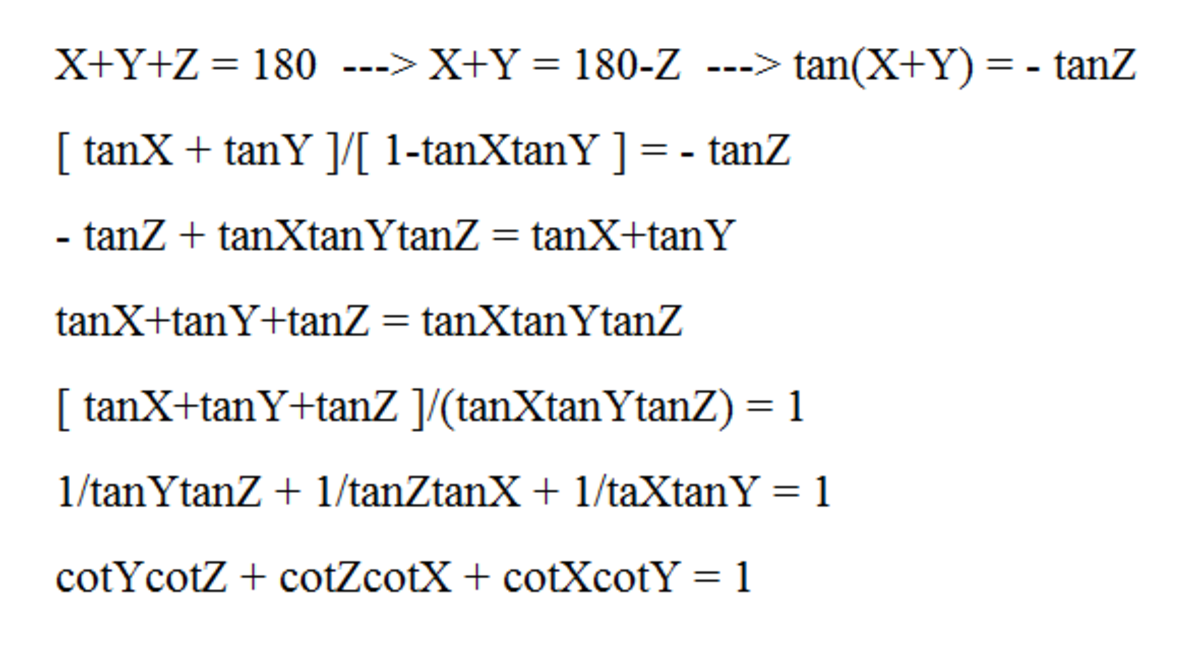Cotangent Rule
If x , y and z are different angles of a triangle. What the value of:
cot ( x ) cot ( y ) + cot ( y ) cot ( z ) + cot ( x ) cot ( z ) ?
The answer is 1.
This section requires Javascript.
You are seeing this because something didn't load right. We suggest you, (a) try
refreshing the page, (b) enabling javascript if it is disabled on your browser and,
finally, (c)
loading the
non-javascript version of this page
. We're sorry about the hassle.
2 solutions

If x , y and z are angles of a triangle, then:
tan x + tan y + tan z tan x tan y tan z tan x + tan x tan y tan z tan y + tan x tan y tan z tan z tan y tan z 1 + tan x tan z 1 + tan x tan y 1 cot y cot z + cot x cot z + cot x cot y = tan x tan y tan z = 1 = 1 = 1 Dividing both sides by tan x tan y tan z
Don't you think the triangle should be non - oblique for the solution to be legitimate ?
Log in to reply
tan x + tan y + tan z = tan x tan y tan z is true for all triangles.
That's true. What I'm saying is that if the triangle is oblique, then one of the tan ( A ) , tan ( B ) or tan ( C ) would be undefined, in which case you can't divide the equation by tan ( A ) ⋅ t a n ( B ) ⋅ t a n ( C ) .
Log in to reply
I don't get you. tan θ ∈ ( − ∞ , ∞ ) for θ ∈ ( 0 , π ) , which angle is undefined? Just suggest three valid angles to disprove it, if you can. Of course, angle of a real triangle cannot be larger than π .